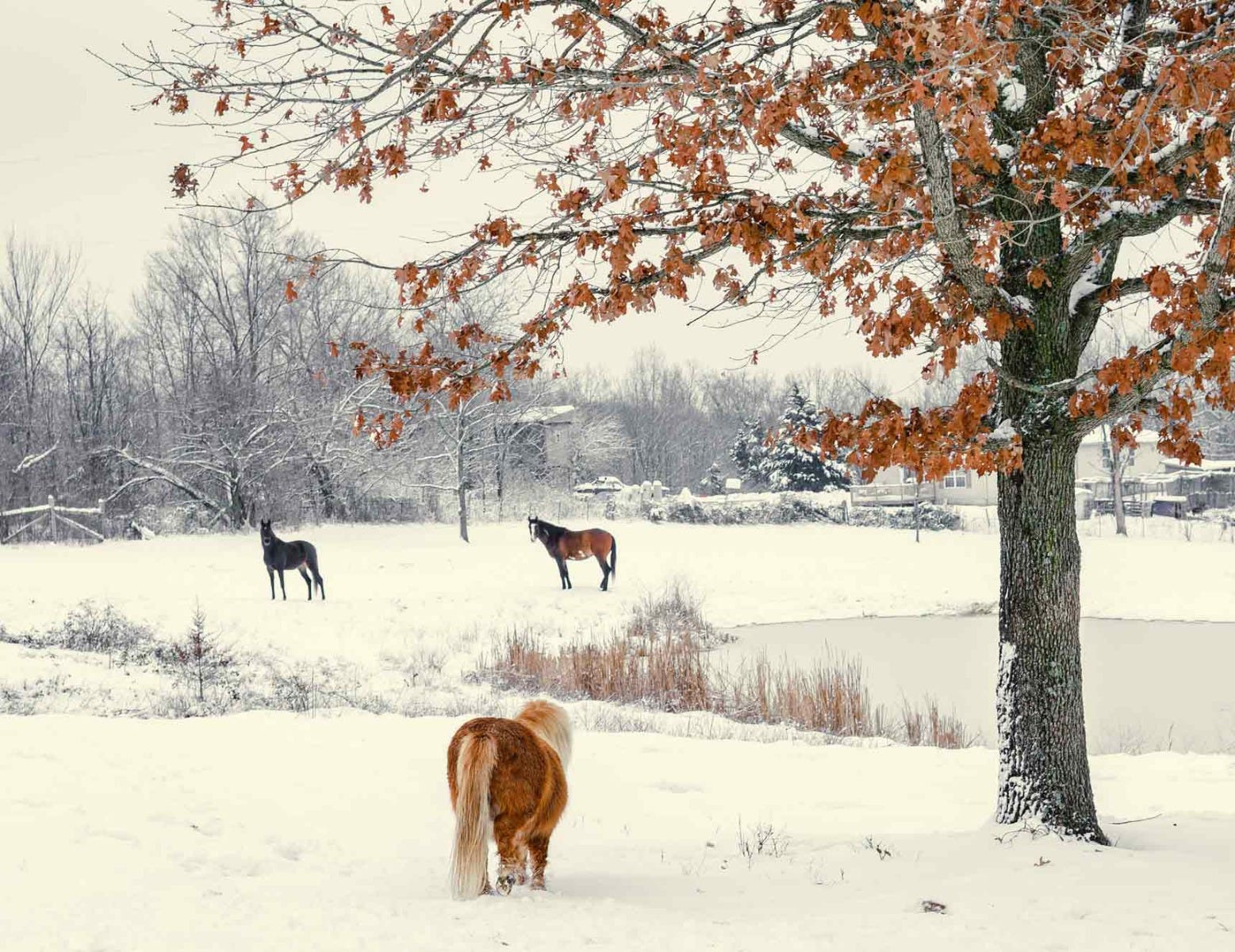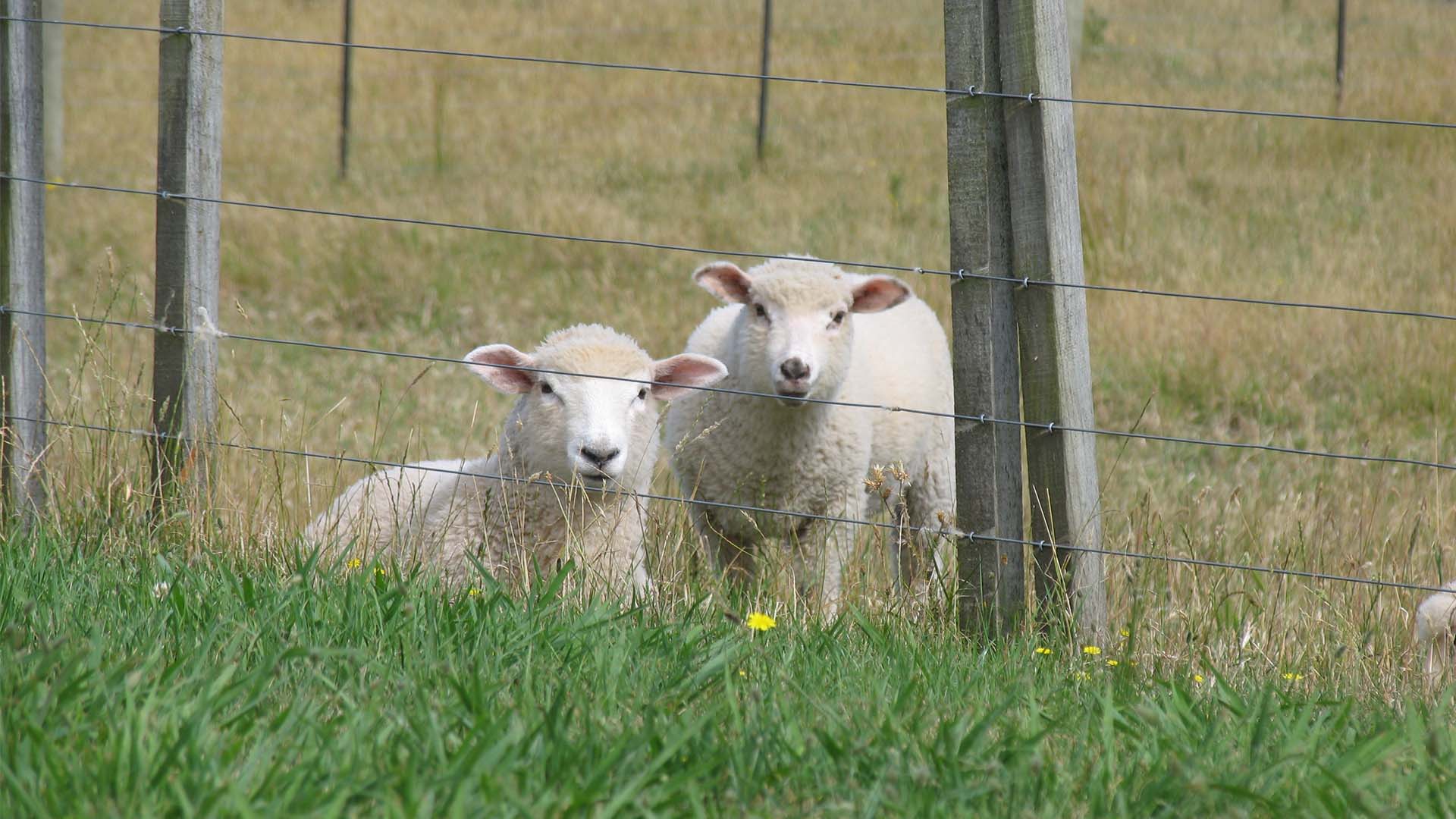
Electric fencing, that uses an earth ground system cannot be as effective in the winter months when the ground is frozen and snow-covered. This is because frozen soil doesn't conduct electricity as well as moist soil. If there is a lot of snow covering the ground, the snow acts as an insulator, preventing the animal from making contact with the earth which connects to the grounding system to complete the circuit.
In some states, many electric fences are not hooked up and operating in the winter months. The earth is frozen several feet deep and the livestock are standing on snowbanks higher than the top wire of the fence!
There is a way to electrify fences in the winter months (although in snowy regions, it’s tough), by using a “hot/ground” or a “2-wire grounding” system rather than the traditional earth ground system.
A “hot/ground” system is installed by running parallel wires on the fence. 1 wire is electrified or “hot”, and the other wire is connected to the ground terminal. If an animal contacts both the hot and ground wires simultaneously, the animal gets a shock. The ground wire transmits the electricity back to the fence rather than relying on the soil alone to conduct the electricity. This type of system is also used in rocky or arid soil regions where subsoil moisture is scarce. It is the best way to build an electric fence in the desert or rocky soil.

Besides switching to a different grounding system, we also ask you to consider the placement of your charger! Some places across the U.S. get into below-freezing temperature, which can be a stress on the charger. If the charger is solar, of course keep it with access to sunlight. However, if you have an AC or DC charger, consider placing it in a warm indoor location with a hookup wire to guide it to the fence line.
Our last tip is to be mindful of the snow. If you get feet of snow, it’s worth disconnecting power to some of your bottom or lower lines of fencing. You can do this easily with a simple cut-off switch. This helps to prevent a drain on your charger while it’s trying to power lines that are covered in snow.
Always know that no matter what, we are here to help with your electric fence in the winter. Looking for more tips on electric fencing, how-to’s and products to make your life easier? Be sure to check out our Learning Center, our Facebook Page and stay up to date with our e-newsletter!



